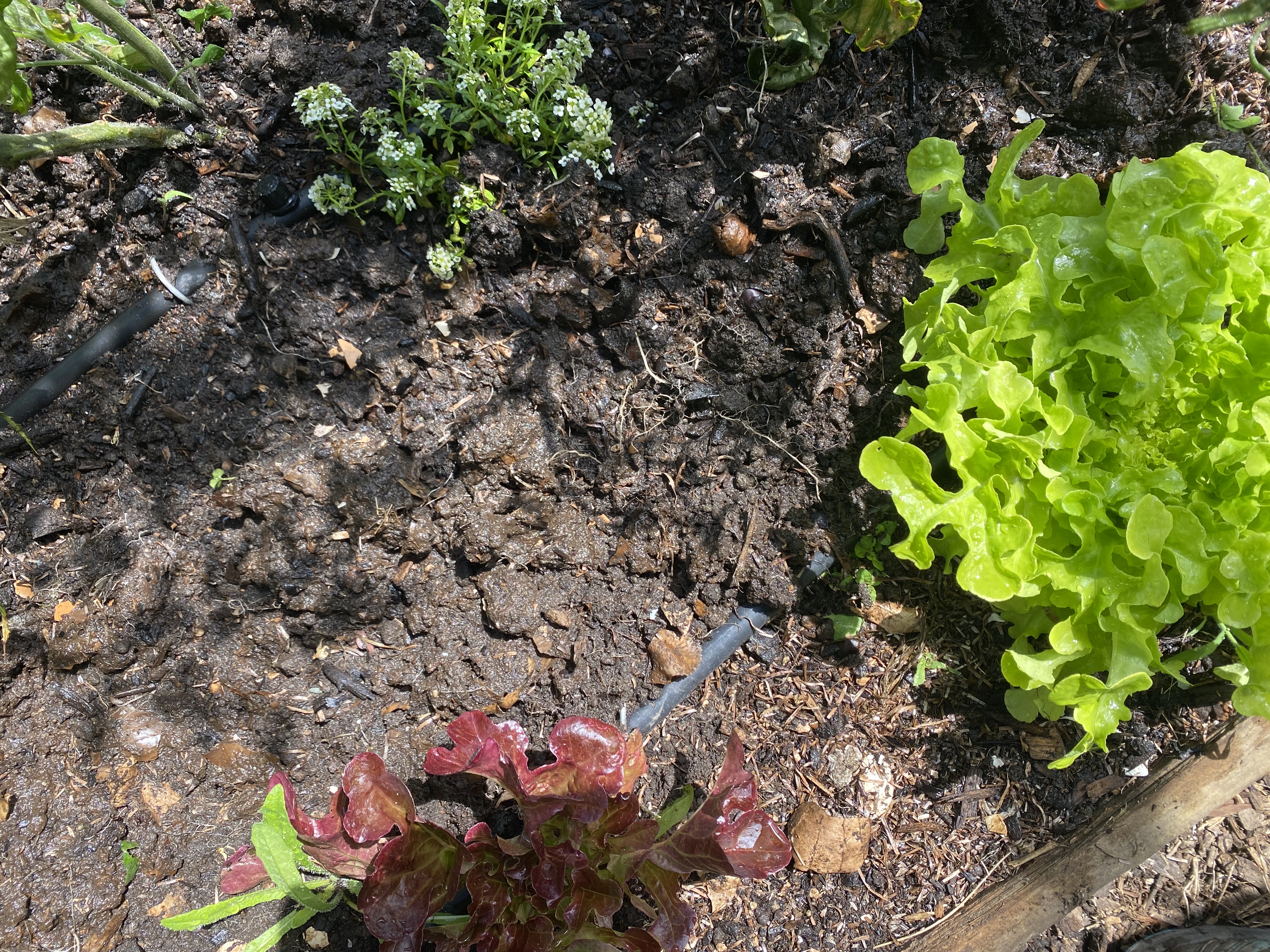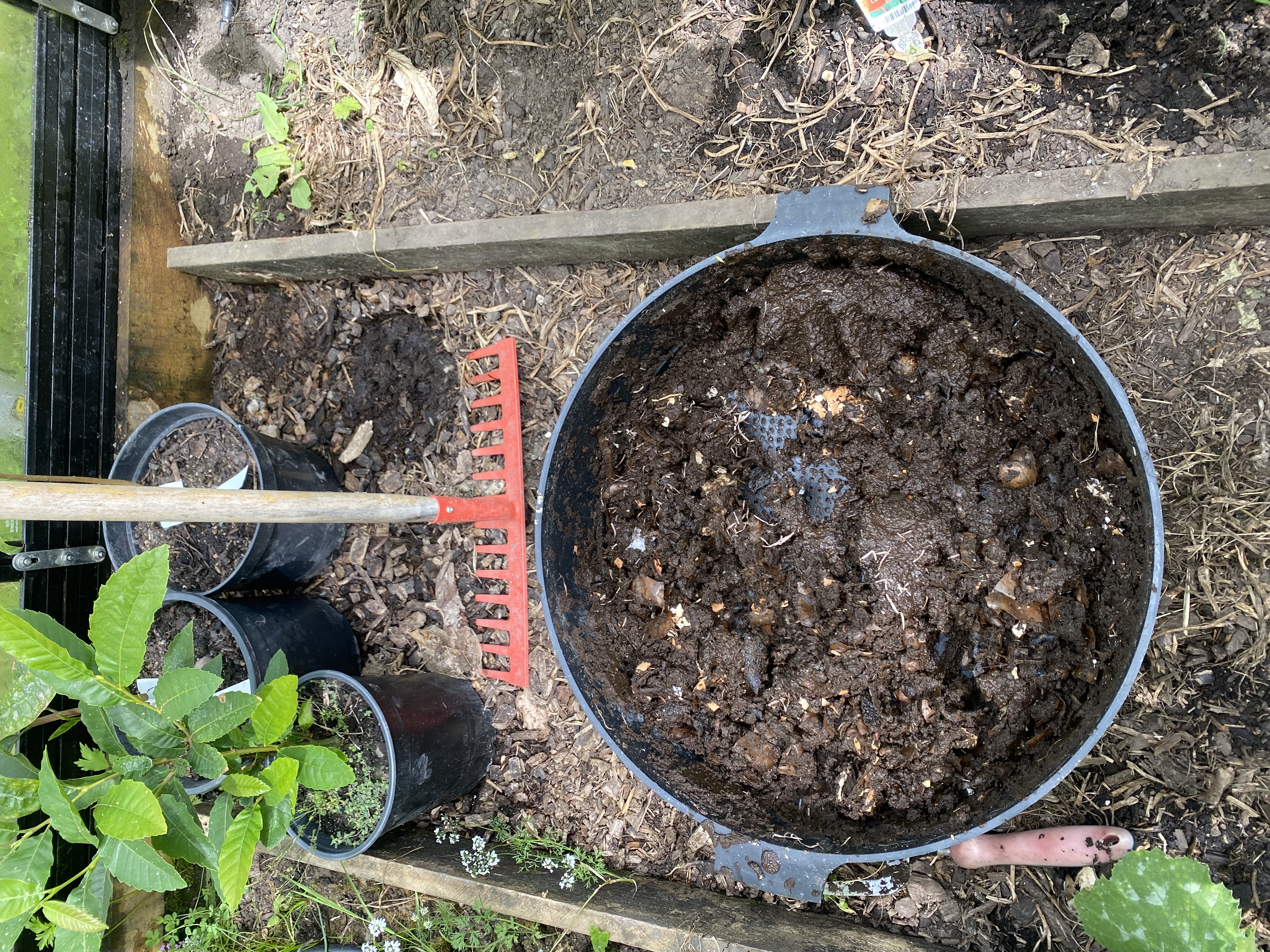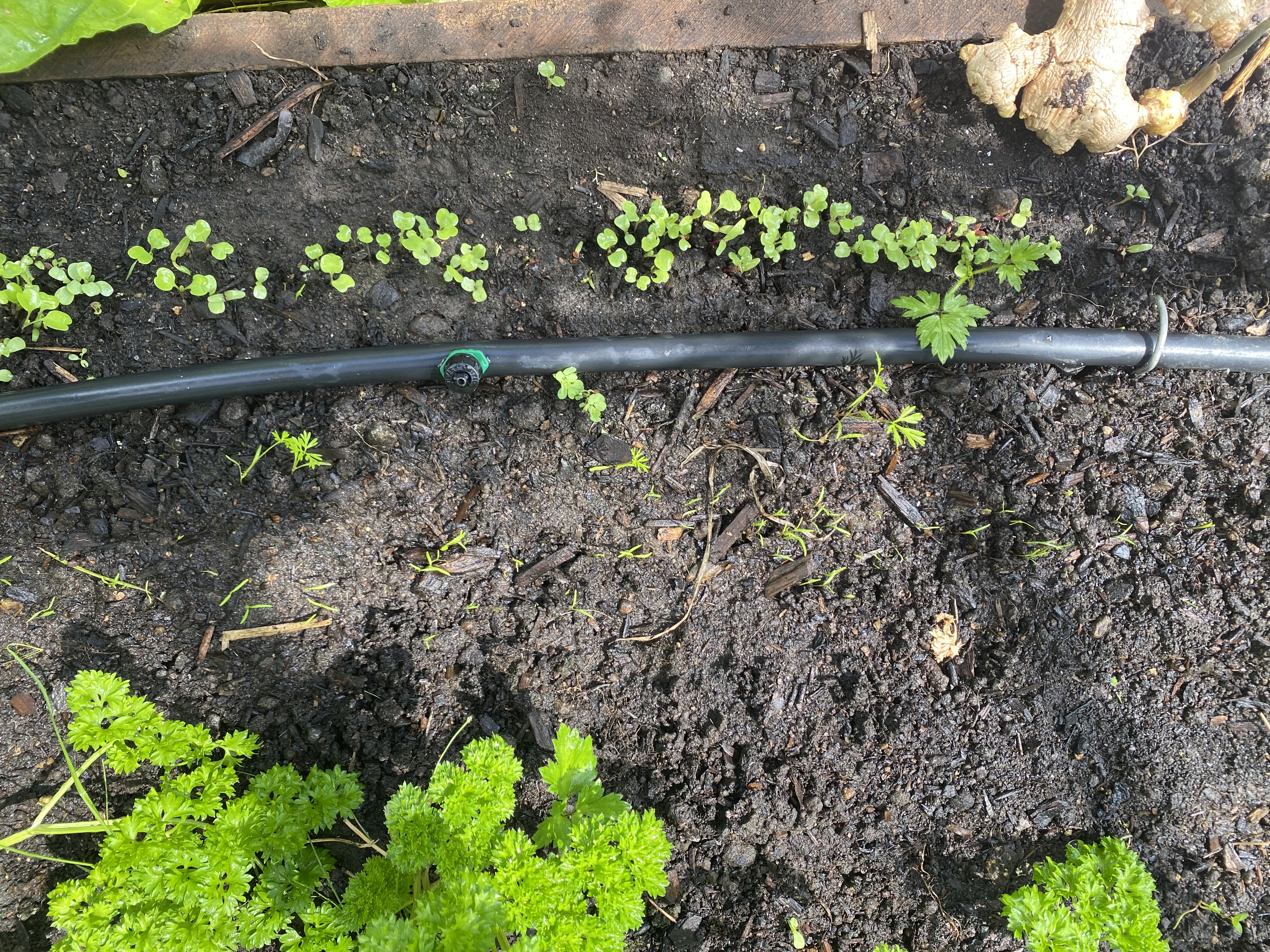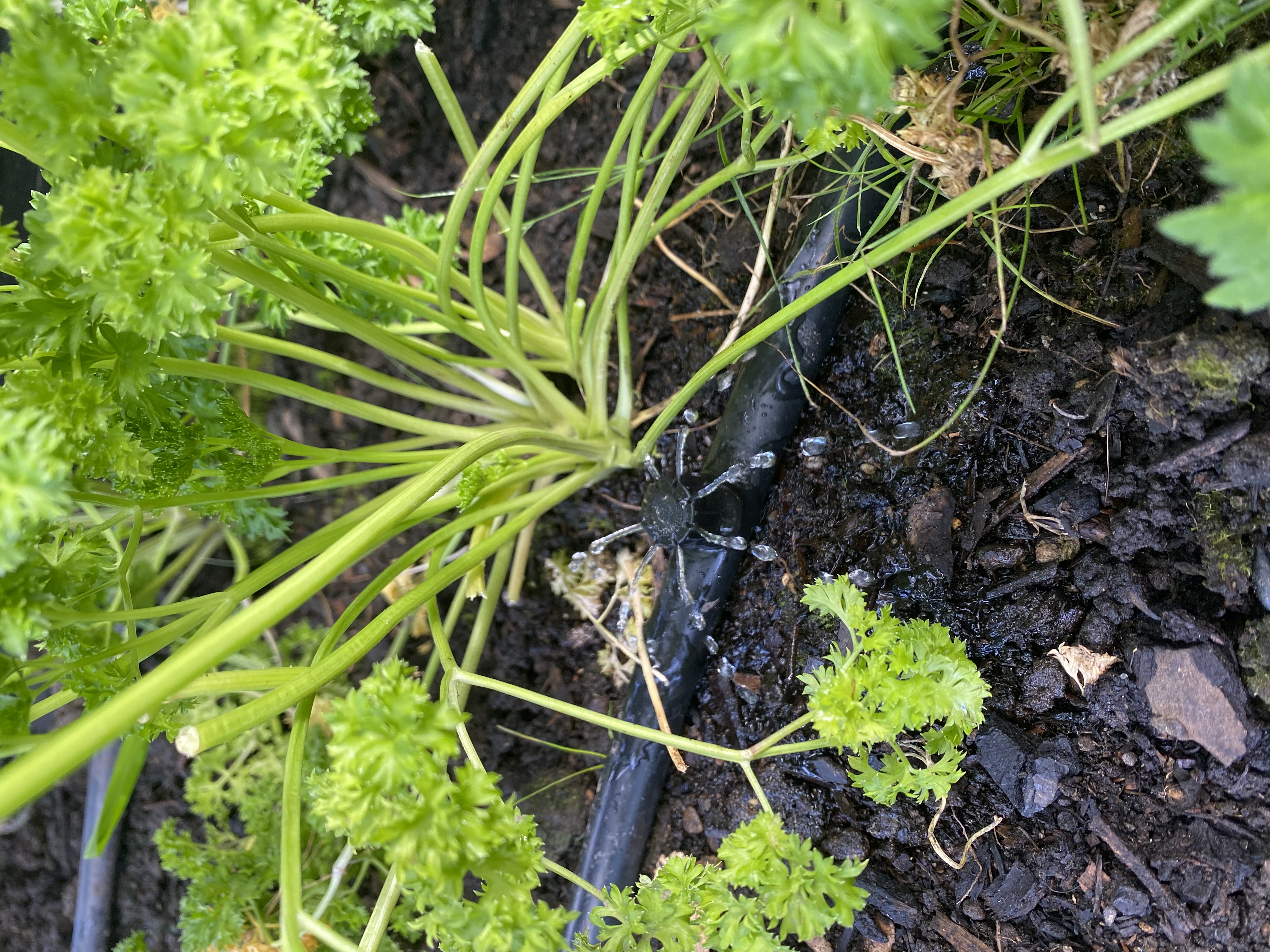Grow with a Pro, December edition
9th Dec 2022
Download the Full December newsletter here
This month is the Glasshouse
This month I’ve been focusing on a few specific things, namely: improving fertility (older leaves on the parsley and silverbeet are yellowing off quickly - indicating a nitrogen deficiency), erecting the shade canopy, fine-tuning the irrigation and direct sowing a lot more seeds to keep the supply of fresh greens going.
Fertility
There’s so much rapid plant growth in the glasshouse it’s understandable I need to be adding nutrients back in regularly. Five months ago I bought organic Daltons compost and dug this in with screened Waikato topsoil but this hasn’t been at all sufficient to get the soil to where I want it to be. The yellowing of older leaves tells me I have nitrogen issues but I can also tell I don’t have a lot of nutrient density as my veges aren’t very flavour-full. What I do have an abundance of (that is nutrient dense) is worm-castings. I’ve been clearing out layers of the worm farm and digging the castings straight into the soil (deeply where I can and worked in shallowly and gently around existing plants) then mulching with sea grass over the top. It’s great to be using this home-made organic material instead of purchased compost which is expensive and not great quality. Most bagged organic compost available at plant centres uses bark as a ‘filler’ to bulk out their mix. What’s worse is the bark is barely decomposed which makes very hard work for the soil to break it down. I’m often grumbling about the quality of commercially available compost in this country - there is simply no substitute for making your own.


Worm castings mixed in, pre-mulch A layer of my worm farm, about 4 months old
Irrigation feedback
I’ve been fine-tuning the irrigation system to make sure all plants are getting adequate coverage. What I love about these Neta drippers is being able to manipulate the radius of water coming out of the dripper. Note: water is supposed to spread out (via capillary action) some 40cm from the centre of each dripper, though I think this is highly variable depending on how free-draining your soil is. One problem I noticed when testing the irrigation in the middle of the day is the initial burst of water out of the drippers was very hot. This needs to be avoided as a blast of hot water can kill tiny seedlings and damage the root systems of young plants. It’s best to set your irrigation on a timer for the early hours of the morning (before or around sunrise) when the pipes are nice and cool. You can also cover the pipe in mulch to help keep it cool but if you cover the drippers themselves they will be forced to dump all their water in one spot and won’t spread as efficiently.

Post mulching with irrigation lines covered – note unless you are careful to leave your dripper heads uncovered they will be forced to send all their water directly under the dripper.


Pictured above are dripper heads on maximum radius (they do go further than this but my water pressure is too low)
Carrot Seed feedback
My carrot seed sowing was a dismal failure and I know why – the seed I used is now 2-3 years old and while it has been optimally stored in a cool dark place carrot seed is known to lose its fertility quickly (leading to poor germination). So I decided to come back and dump half a seed packet into a row 1m long and hey presto – much better germination (as you can see below). This is the thing to be aware of with seeds, ‘if you don’t use em you lose em’. Also if you follow biodynamic principles you would sow seeds a few days before the full moon. I almost always found when I worked at Hohepa farm Canterbury the strike rate would be significantly improved if I sowed seeds just before the full moon (especially with tomatoes for some reason).
Thanks for reading the sample of this month's newsletter. I'll be taking a break in January, back with a February newsletter. I hope you all have a great Christmas/Summer break! cheers, Carl Pickens
continued in the full pdf download below:
Download the Full December newsletter here
